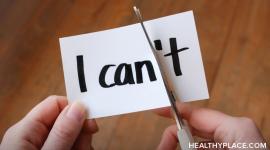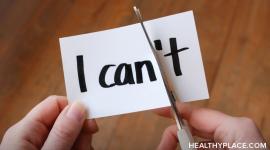What Is Self-Confidence?

Self-confidence is a term that appears in many contexts, from improving mental health to helping people meet business goals and more. Self-confidence is more than a buzz word; it’s a genuine concept linked to mental health, wellbeing, and a positive way of being in the world. Self-confidence includes both feeling and doing.
Self-confidence is not so much a single idea as it is a process that involves how someone thinks about himself and others as well as how he functions despite challenges and uncertainties. Self-confidence applies to someone’s inner, private world and to his outer world around him.
This is the broad definition of self-confidence. What, specifically, is self-confidence?
Self-Confidence Definition: What Is Self-Confidence?
In her book The Portable Therapist (1992), Susanna McMahon explains that self-confidence is “a way of being in the world that allows you to know yourself and to take care of yourself.” Mary Welford (2013) says that it’s about being aware of when we’re struggling and having the strength to commit to doing something about it. Anneli Rufus (2014) asserts that self-confidence involves self-respect and having the courage to tell the truth about who you are, what you like, and what you believe.
Self-confidence, then, is the courage to know yourself, believe in yourself, and act on your beliefs. A definition of self-confidence is a positive feeling about oneself and the world that leads to courageous actions born out of a sense of self-respect.
The above definition explains what self-confidence is. These examples illustrate what self-confidence can look like. Self-confidence means:
- Valuing yourself for who you are regardless of the blunders you make, the type of work you do or don’t do, etc.
- Feeling good about yourself; feeling worthy despite imperfections
- Being courageous enough to stand up for yourself and be assertive
- Knowing that you’re worthy of others’ respect and friendship
- Knowing and accepting the whole of you, both your strengths and weaknesses
See also "5 Self-Confidence Tips that Provide Powerful Results"
Self-Confidence Definition: What Self-Confidence Is Not
To better understand what self-confidence is, it’s helpful to know what self-confidence is not. Self-confidence is not:
- Believing that you’re perfect, or thinking that you should be perfect
- Holding yourself to unrealistic expectations and standards
- Living a life free of problems, pain, and difficulty (but self-confidence does help you cope with life’s problems, pain, and difficulties)
- Being selfish (quite the opposite, for when you’re confident in who you are and what you can do, you’re more likely to reach out to and connect with others)
Is Self-Confidence the Same as Self-Esteem?
Self-confidence and self-esteem are very similar but not quite identical terms. Self-confidence can be defined as positive feelings about self and world that impact someone’s actions. Self-esteem is sometimes described as the degree to which someone values him/herself. There’s also a concept known as self-efficacy. Self-efficacy is someone’s belief in her ability to accomplish something.
These three concepts aren’t identical to each other; however, they are closely related. Self-esteem emphasizes someone’s feelings about herself. Self-efficacy emphasizes the degree to which someone believes she can do something. Self-confidence, with its emphasis on both acceptance of someone’s whole self and how she acts in the world because of it, is perhaps a perfect merging of self-esteem and self-efficacy.
The Meaning of Self-Confidence: A Quality-Of-Life Issue
How important is it for someone to develop self-confidence? The central issue relates to the quality of life. Self-confidence influences the life someone creates for herself.
A lack of self-confidence negatively impacts someone’s quality of life. Having little self-confidence creates feelings of
- Self-doubt
- Unworthiness
- Inferiority to others
- Apathy
- Loss of enjoyment
- Anxiety, depression, and other mental health challenges
In contrast, self-confidence creates
- Awareness of strengths, limitations, and how to live your life with both
- Acceptance of one’s faults; the realization that perfectionism is neither possible nor desirable
- A feeling of being complete
- A sense of inner peace
- An experience of balance between one’s strengths and weaknesses
- The ability to create and experience happiness
Self-confidence is experiencing genuinely positive feelings about yourself while accepting your faults and foibles. A definition of self-confidence is acting assertively because you believe in your inherent worth. Self-confidence means that even when you don’t like things about yourself, you love your whole self.
APA Reference
Peterson, T.
(2021, December 24). What Is Self-Confidence?, HealthyPlace. Retrieved
on 2026, January 14 from https://www.healthyplace.com/self-help/self-confidence/what-is-self-confidence


